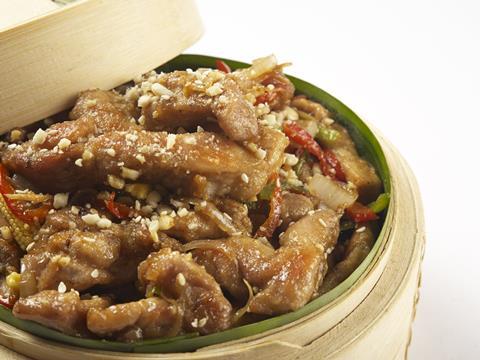
The World Packaging Organisation (WPO) and the United Nations Industrial Development Organization (UNIDO) have completed a project intended to develop food safety guidelines for the Mongolian food sector and help its participants achieve international standards.
In November 2017, WPO and UNIDO signed a Memorandum of Understanding to cooperate in building packaging capacity – aiming “to achieve the mutually declared objectives towards the operationalization of UNIDO’s mandate for inclusive sustainable industrial development”.
Now the Ministry of Food, Agriculture and Light Industry (MOFALI) invited UNIDO to assist in the Mongolia Export Development Project (EDP). UNIDO is a non-resident agency in Mongolia, but carries out its mandate there via the UN Sustainable Development Cooperation Framework (UNSDCF) and in collaboration with the UN Country Team.
Funded by the World Bank’s International Development Association (IDA), the EDP project’s goal is “to support Mongolian small and medium-size firms (SMEs) in the non-mining sectors to strengthen their export capabilities and expand access to export markets” by improving their compliance with market requirements.
In this endeavour, the organization sought to develop food- and non-food-related certification services that would be accepted by both domestic and foreign buyers. These are modelled on the Food and Agriculture Organization’s Codex/CAC/RCP 1-1969 food hygiene principles, as well as international best practices.
The overall project was implemented by the UNIDO Agribusiness Department’s Sustainable Food Systems Division, or DTA/AGR/SFS. It monitored and evaluated the proceedings alongside other departments and divisions, its regional office in China, and WPO.
“The UNSDCF is a result of a comprehensive, consultative process of identifying the major development priorities in the country vis-a-viz the UN’s comparative advantages,” says Ali Badarneh, division chief at UNIDO Austria, who oversaw the interface with WPO. “It sets the basis for the strategic scope and nature of the collective work of the UN system’s programme.”
WPO’s general secretary, Johannes Bergmair, led the project in Mongolia. He continues: “There were a few steps in the project. We started reviewing all the project-related documentation and liaising with national and international experts to have a clear understanding of the project scope.
“The result was two guides, one to compliance for the identified actors and another to best practices for the identified actors along the value chain.”
Luciana Pellegrino, president of WPO, concludes: “Once again, we are very proud of the results of this new conjunction action UNIDO - WPO in Mongolia. It is gratifying to see such important documents, as the Guidelines to Facilitate Good Practices in the Food Packaging Industry, developed by a WPO expert, in this case, our General Secretary, Johannes Bergmair.
“In addition to the guides, a training course has been recorded so that it can be used by Mongolia Ministry of Food, Agriculture and Light Industry.”
In its own pursuit of harmonized, holistic, sustainable, and safe regulation for food packaging, the Alliance for Sustainable Packaging for Foods has released a position paper analyzing peer-reviewed publications and weighing up the role of packaging in food safety and loss.
In other news, Mondi, Rengo, and Starpack, are among the winners of WPO’s WorldStar 2024 competition. This year’s victors brought packaging with recycled content, efficient designs, interactive experiences, and other developments to the table.
If you liked this story, you might also enjoy:
The Brief: How viable is biorecycling for plastics?
Report: How the top brands are progressing on packaging sustainability
The Brief: Using ocean-bound plastic in packaging – how, why and should we?














No comments yet